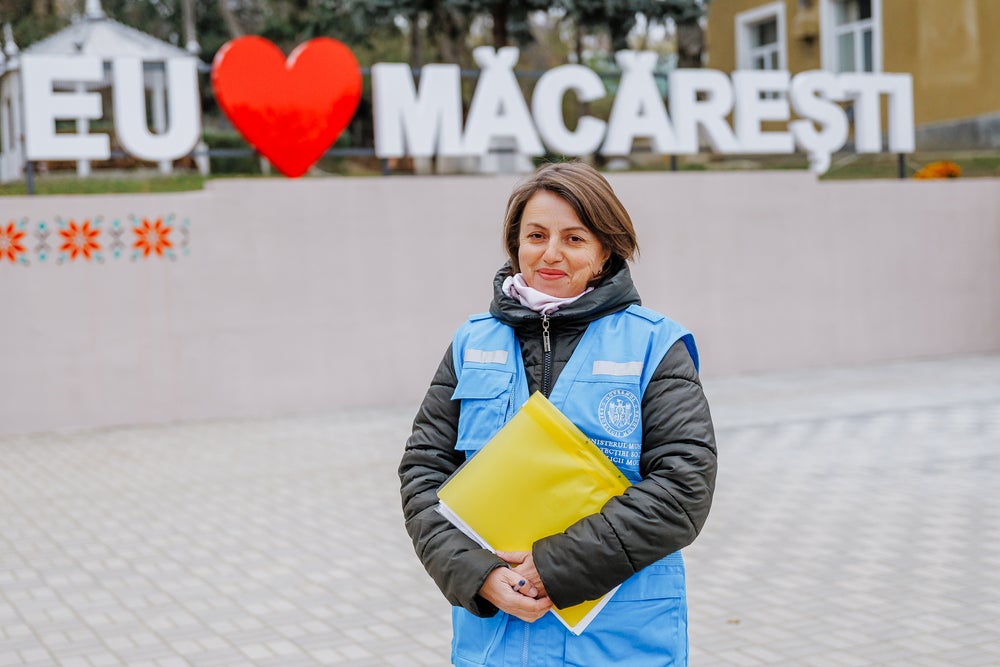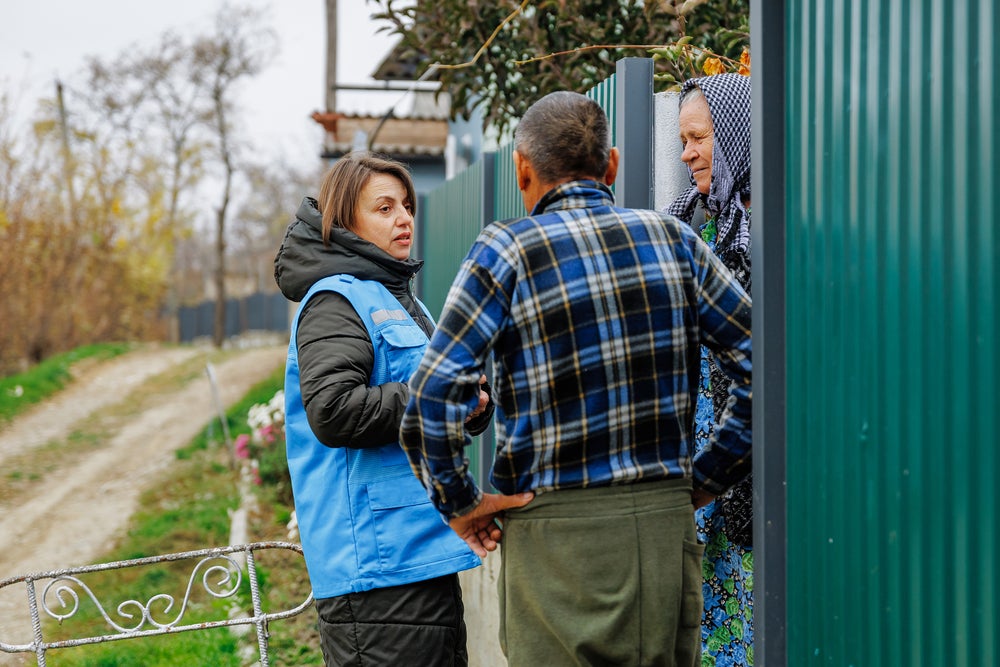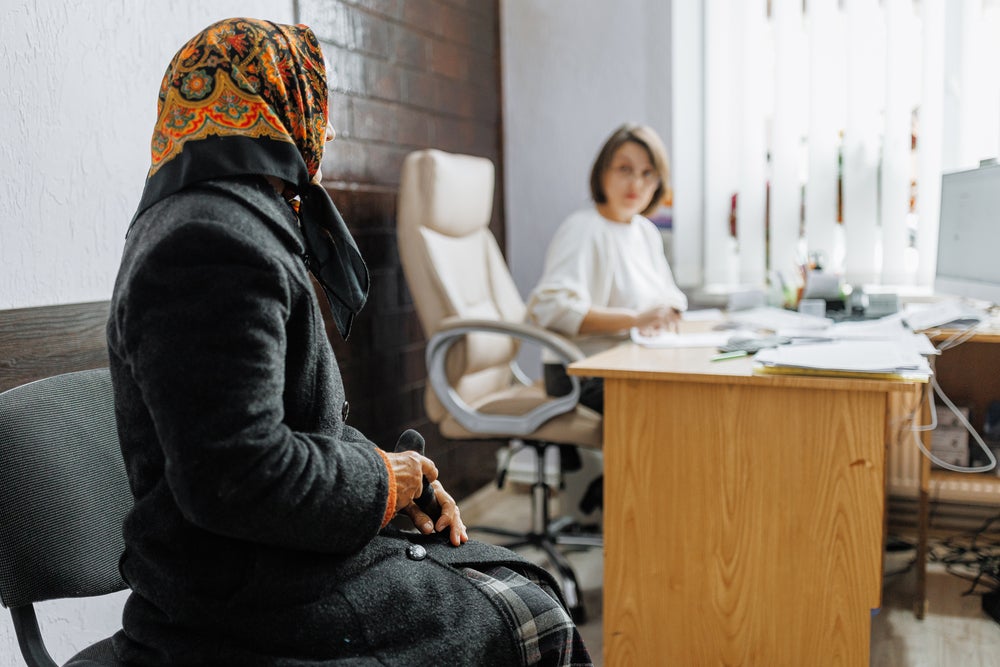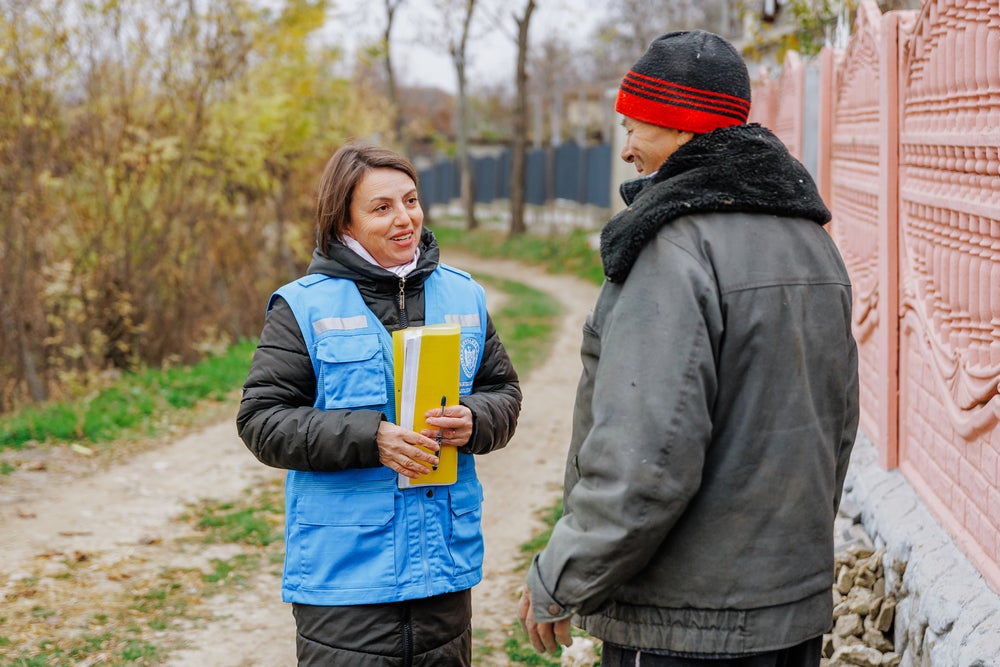Every day of the community social worker is about people and for the benefit of the people in the community. For more than 17 years, Lilia Mărcuță has been working as a community social worker in Măcărești, Ungheni district, in a field full of challenges and responsibilities. Facilitating access to services and social benefits, monitoring disadvantaged families, and supporting refugees are just a few of these responsibilities.
At the same time, Lilia Mărcuță is a paralegal and supervisor of five social workers in the villages of Costuleni, Valea Mare, Morenii Vechi, Florițoaia, and Cetireni. This means she provides consultancy, checks how individuals have been referred to specialized social services, and helps the supervised community social workers develop their professional skills in working with families in need.

Lilia Mărcuță has another key responsibility. Certainly, one of the most important for her – ensuring that no one in the community is subjected to violence:
"In the past, violence was spoken about in hushed tones, out of fear and shame about what the neighborhood would say. Now, it is talked about more, but it is still hard work to resolve a case. Most often, we are notified by the law enforcement. Sometimes, victims themselves seek help, most of them women. In our village, there are not many cases of violence, but they most often happen in the same families – where partners drink alcohol, don’t work, or have many children, as well as in families considered 'good' in the village."
When she learns about a case of violence, together with the entire multidisciplinary team, she gets involved in resolving the case. Each team member (police officer, medical worker, social worker, mayor, etc.) intervenes based on their expertise and the complexity of the case:
"It is important to create a safe and protective environment for the victim, to make them feel that they can trust us. I explain their rights to them – about the restraining order and protection order, the right to free medical and legal assistance, temporary placement, and psychological counseling."

In this process, the social workers collaborate with specialized services and encourage the victims to break free from the cycle of violence, explaining how severe the consequences can be for their children:
"Children who are subjected to violence and those who grow up in an abusive environment have lower academic performance, are more anxious and less sociable, exhibit behavioral disorders, and even suffer from some health issues. We collaborate with the Family and Child Social Assistance Center 'CREDO' in Ungheni and place people in need there. Just in September, we urgently placed a mother with four children. Our goal is to provide assistance and protection to all mothers and children."

Throughout 2024, the Police recorded 15,976 reports/complaints regarding dysfunctional behavior and relationships within families, which is a 4.93% increase compared to the previous year. Of these, 1,575 cases were classified as criminal offenses, including 33 cases of death due to domestic violence. Nearly 90% of the victims were women and children.
To know how to act in each case and create a supportive environment for women and children in need, social workers constantly participate in various training sessions in the field.

"We have been trained in domestic violence and gender-based violence by NGOs, with which we later collaborated. We also work efficiently with law enforcement, especially after they have been trained in the field. Such training sessions are very useful – we discover new tools for working with domestic violence victims, the latest legislative provisions, and how to act procedurally in certain situations," says Lilia Mărcuță.
Despite the daily challenges, she says that every resolved case is a shared victory – for the victim, the entire team, and the system as a whole.

"It is a very difficult journey, but we can also be proud of success stories. We have come to one conclusion: the involvement of authorities alone is not enough. We must pay more attention to and provide more assistance to the victims because they find it very difficult to ask for help or to follow through. There have been cases when we reached the court, and in the end, the woman returned to the abuser. There are also cases where they withdraw their requests or no longer wish to cooperate. Most of these women grew up in such families, were raised to be submissive, in an environment full of prejudices, where violence was a method of education and a way of showing love. We need to educate society, to educate the younger generation, starting from the family and kindergarten – why violence is not a way to solve problems and how to protect themselves from any form of abuse," concludes Lilia Mărcuță.
Strengthening gender-based violence services in Moldova is one of the key objectives of the "RESTART" social assistance system reform. The UN Population Fund (UNFPA) is working alongside national partners to improve the protection system and response to violence against women, including through information, legal framework harmonization, developing support services, and combating gender stereotypes.
Thanks to the UN Population Fund and the United Kingdom, over 1,500 community social workers in the country have been trained to provide a more effective response to gender-based violence cases, and "Safe Spaces" have been created. Additionally, several women-led organizations have received grants to develop community initiatives for the prevention of gender-based violence.
https://www.youtube.com/watch?v=t3cx-_KvLjo



